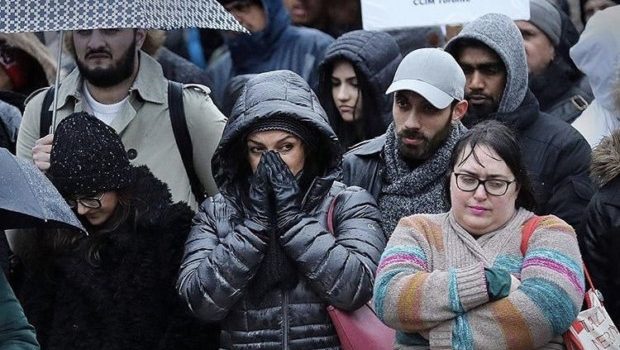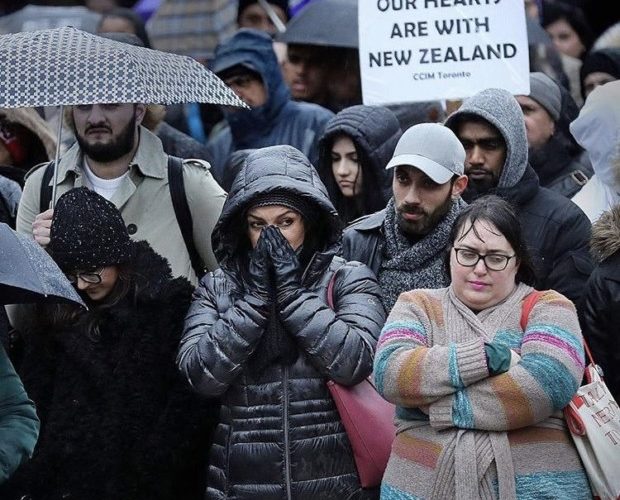


Three days ago, on March 16 the New Zealand massacre occurred. The lasting effect hasn’t only been limited to New Zealand.
Chairperson of the Canadian Council of Imams Dr. Iqbal Massod Al-Nadvi said he was surprised and shocked when he heard the news.
“It was surprising for me because I know that New Zealand is a very remote and peaceful country,“ Al-Nadvi told Skedline.com.
He said he was pleased with the Prime Minister of New Zealand Jacinda Ardern’s response to the tragedy and commended Ardern’s condemnation of the attack as a terrorist act.
“How the prime minister responded was very positive, especially since she used the word terrorist because most people avoid it,” he said.
Al-Nadvi said he believes Canada has become part of the issues because of the Quebec mosque shooting in 2017.
“The attacker quoted the Quebec mosque issue, in that sense Canada has become a part of it,” he said.
The Quebec mosque shooting occurred on Jan 29, 2017 after Alexandre Bissonnette.entered the Québec City Islamic cultural center and shot dead six people. He had been charged with first-degree murder and another five counts of attempted murder.
According to the National Observer, Bissonnette “was obsessed with Donald Trump and searched for the U.S. president online more than 800 times between Jan. 1 and Jan. 29, 2017, the day of the harrowing shooting. He also browsed regularly for Muslims, mass murderer Dylann Roof, mass shootings, feminists, and a plethora of far-right conspiracists and pundits.”
In Christchurch, New Zealand 50 people were killed in two different Mosques. Brenton Harrison Tarrant has been arrested and charged with murder.
Al-Nadvi thinks that one of the main problems in shootings like this is the language that is used.
He said, “establish a standard for both, if a Muslim person attacks they call it terrorism but if somebody else attacks they call it different words”
Terrorism is defined in the Government of Canada website as “any other act or omission intended to cause death or serious bodily harm to a civilian or to any other person not taking an active part in the hostilities in a situation of armed conflict, if the purpose of that act or omission, by its nature or context, is to intimidate the public, or to compel a government or an international organization to do or refrain from doing any act.”
Al-Nadvi said he believes education and awareness is a big factor when it comes to these attacks. He also believes that awareness should be brought through interfaith events.
“At the same time we need to educate and bring awareness to the problem because many times ignorance is a big thing when it comes to incidents like this,” he said.
Cameras have been placed in mosques. Nadvi said, “one of the securities is that we can ask the police to be there, make some kind of CCTV system, some kind of a monitoring system. Police have offered support to the community” RCMP, Police and experts provided support too.
“RCMP, police and one expert offered us information and tips of security,” said Al-Nadvi.
Memona Hussain, a volunteer from the Muslim Association of Canada, said she believes people in the community think incidents like this can happen anywhere and are looking for hope and to heal.
“I think that given that we are in a global village we see everything that is happening and I think everybody feels it could be anywhere, I think people are impacted in terms of grief, in terms of fear and they had the memory of what happened a couple of years ago in Quebec, they are looking for hope they are looking for ways to heal and move forward,” Hussain said.
Hussain said she believes grieving is an important process when it comes to dealing with attacks like the one in New Zealand.
“Part of it is as a society and a community we need to allow space for grieving and that can happen in different ways. Many families were concerned about their safety,” Hussain said. ”People with children were worried about attending Friday prayers, people were genuinely concerned about going there so we had to ramp up security and have communication with members just to voice that.”
The Muslim Association of Canada encourages others in the community to stay united but make their own decisions about whether they want to attend the Mosque.
“I don’t think you can make a decision for anybody, people have to make a choice for themselves whether they want to attend or don’t want to attend but all we can tell them is these are the steps we are taking,” Hussain said.
Tehmina Mirza from the Ahmadiyya Muslim Student Association (AMSA) said she believes peoples reactions are changing and they are being more accepting realizing that Muslims are not necessarily the ‘others.’
“We’re just like everybody else,” Mirza said.
Image Curtosey of @talliedar
